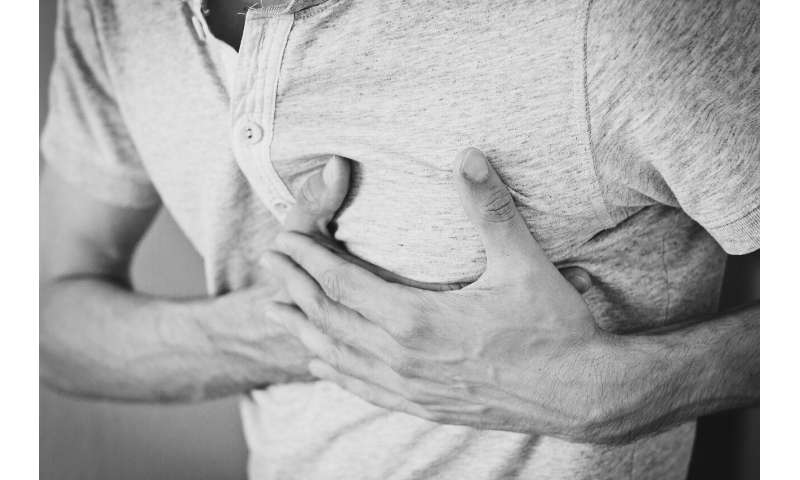
Deep chest compressions can crack ribs, but they reduce brain damage during cardiac arrest, reports a study presented today at ESC Congress 2020.
Study author Dr. Irene Marco Clement of University Hospital La Paz, Madrid, Spain said: “Deep chest compressions improve blood flow to the brain, improving survival and brain function.”
CPR guidelines are updated every five years and are used to train health professionals and members of the public. The 2010 recommendation for deeper chest compressions generated concerns over the possibility of increasing CPR-related injuries.
This study examined the impact of this advice on neurological outcomes in survivors of cardiac arrest. It also assessed the rate of CPR-related injuries and their association with prognosis.
The study limited participation to comatose survivors of cardiac arrest, since they would have received prolonged resuscitation. In contrast, survivors who regain consciousness have generally received an immediate electric shock and brief chest compressions to restore circulation. “We wanted to analyse the effect of deep chest compressions during prolonged resuscitation, when they could make a real difference to outcomes,” said Dr. Marco Clement.
In 2006 to 2020, the study enrolled consecutive patients admitted to an acute cardiac care unit after a cardiac arrest in hospital or in the community. Patients were divided into three groups corresponding to updates of the CPR guidelines: 2006-2010, 2011-2015, and 2016-2020.
The study included 510 patients who survived cardiac arrest and were admitted to hospital while unconscious. The average age was 63 years and 81% were men. CPR by lay bystanders and the use of automated external defibrillators (AEDs) progressively increased over the study period.
After 2010, there was a higher proportion of CPR-related injuries: 12.7% in 2006-2010, 23.5% in 2011-2015, 22.7% in 2016-2020 (p=0.02). Just over half of patients survived and were discharged from the hospital (51.6%). Brain performance at three months significantly increased over the course of the study (i.e. it was highest in the 2016-2020 group).2
Patients with CPR-related injuries were more likely to have better brain performance. Nearly two-thirds (65.1%) of patients with injuries had high brain function compared to 43.2% without injuries (p<0.01). The most common injuries were rib or sternal fractures.
“Survival and neurological outcome improved significantly during the 14-year study,” said Dr. Marco Clement. “Members of the public increasingly came to the rescue with CPR and there was greater use of AEDs. Injuries from CPR rose, but these patients were less likely to have brain damage.”
She noted that lay people have been reluctant to do CPR during the COVID-19 pandemic due to fear of infection. She said: “Personal safety always comes first, and resuscitators should only do what they feel comfortable with. If you are concerned about possible contagion, you could omit mouth-to-mouth breaths: chest compressions alone may be as effective as conventional CPR.”
How to improve survival and prevent brain damage from cardiac arrest:
* Ask a bystander to call emergency services and find an AED.
* Start deep chest compressions immediately.
Source: Read Full Article
